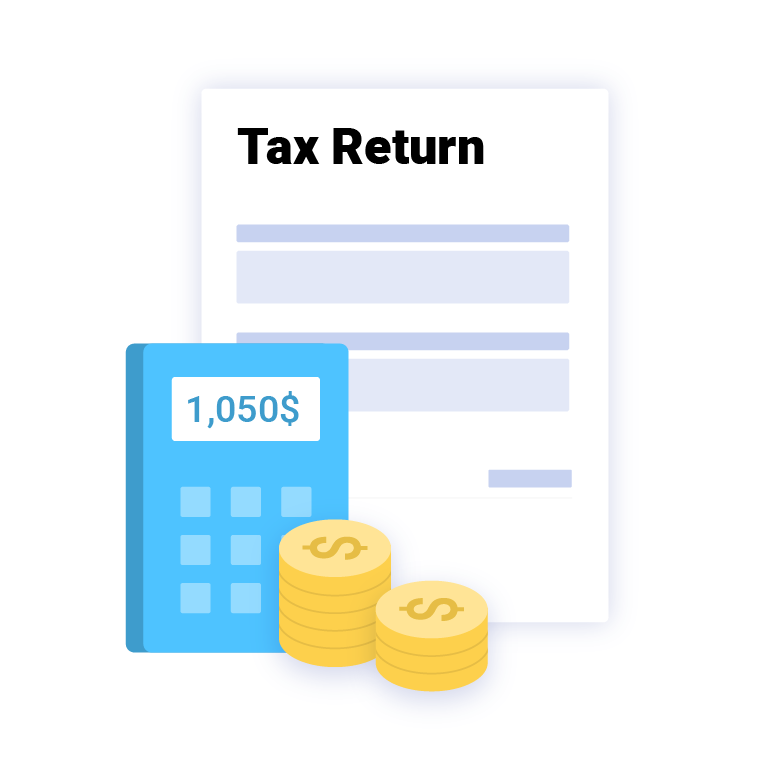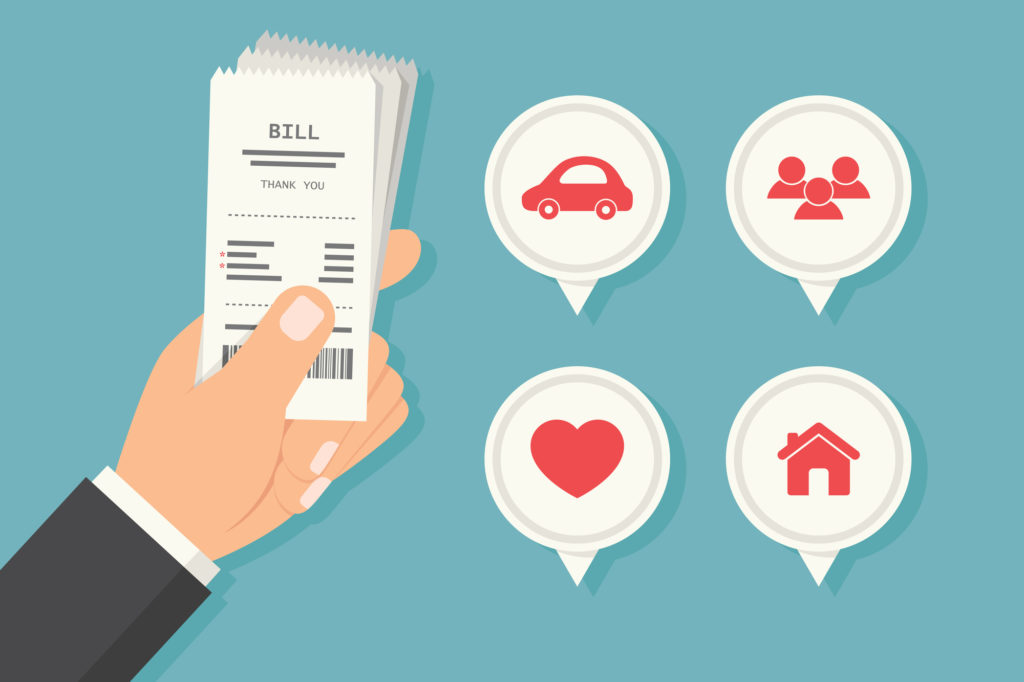8 Best Money Management Apps (Free and Paid)
In this article, you’ll learn about the best paid and free money management apps for PC & MAC with their pros and cons

Back in the day, setting personal finances in order would almost be a horrifying task. With a spill-over of bills and cheque books from banks accounts frantically laid out to estimate net worth. In addition, the job would seem never-ending and challenging to determine a certain financial position.
However, in the age of technology, the financial market is saturated with the best budgeting apps that help keep track of your: personal capital, cash flow, spending habits and investments at the touch of your finger.
Users can choose from several paid and free budgeting apps that make money management a breeze and tracking expenses and savings effortless.
What is a Money Management App?
A money management app is a financial application synced with the user’s bank accounts and tracks data on income and expenditure. Such budgeting apps also help collate and organize data to determine spending habits, cash flow, and ways to utilize income better to improve the user’s financial health and personal finances.
Best budgeting apps must offer a few features like bank account and credit card integration, prompt bill payment reminder, receipt tracker to determine spending habits, debt analyzer, and investment tracking and optimizing features. A budgeting app that provides comprehensive reports by combining the data offers users an accurate picture of their financial standing.
Money management apps differ based on money management, budgeting and handling investments to provide a more targeted service. If broadly categorized, there are three types of money management apps:
1. Budgeting apps
Best budgeting apps allow users to plan future expenses by limiting spending habits. This is enabled by allocating income to different categories based on user preference to achieve specified financial goals.
2. Habit Trackers
Users usually use habit trackers for a more accurate and elaborated analysis of their spending habits and track cash flow. Integration of artificial intelligence tool in such apps makes it possible to understand and analyze user behaviour. By dedicatedly and categorically tracking expenditure, habit tracker apps suggest habit alteration for improving their financial health.
3. Investment apps
If you’re someone who likes to multiply money by investing and trading, investment apps come extremely handy to enable smooth multiplication. You can make your money work for you without delving deep into the intricacies of investing by using investment money management apps. Such apps also offer professional and well-researched solutions for investors and lenders in the market.
The Difference Between Money Management Apps and Budgeting Apps
A money management app is a holistic personal finance app that allows users to integrate credit cards, debit cards, bank accounts and track spending habits while also offering them access to their investment accounts. Such apps collate and visualize data based on user’s financial activity to present them in convenient graphs.
However, a budgeting app more specifically concerns providing reports of user expenditure. The best budgeting apps allow users to figure out where their money is going. They do it by representing spending habits in graphs and charts. Budgeting apps help users in allocating capital to specific categories to enable optimum utilization of funds.

Pros and Cons for Free Money Management Apps
The technological advancements have positively saturated the fintech market with money management app that includes paid subscription and free, open access apps. However, using a free budgeting app bears its own set of pros and cons, worth exploring before starting saving and checking accounts.
Pros of using free budgeting apps:
1. No-fuss Set Up
Making an account on a free budgeting app is supremely easy. Such apps allow users to verify their email account and link bank accounts with their user-friendly interface. Budgeting apps offer direct access to all the valuable and relevant information regarding user’s financial health.
2. Accessibility
Budgeting apps are increasingly made accessible by offering multiple budget tools. Since such apps are cloud-based, users can install a mobile app from the app store. Alternatively install software on their personal computer to enable easier money management.
Budgeting apps like YNAB (You Need A Budget) and Mint have an arguably easy and self-explanatory dashboard to enhance user experience and aid in managing personal finances. Such apps track your spending and calculate credit score with ease.
3. Real-time Notifications
The best budgeting apps offer some of the premium benefits to provide real-time notifications of transactions to its users. While it is seamless and convenient to pay for services and commodities via credit cards instead of money, it also increases the user’s vulnerability and financial accounts. There are innumerable fraudulent activities that ensue during or soon after the use of plastic money.
There is also a risk of losing credit cards in theft or other accidents. With real-time notification tools in budgeting apps, a user can set alerts for possible fraudulent mishaps.
Real-time notification tool is also helpful in receiving bill payment reminders, unexpected cash flow like winning a bid or tracking investment goals.
4. Predictions and Analysis
A lot of users share concerns over deciding their future financial health. This often poses a challenge for users to envision their financial goals. Budgeting apps help evaluate the overall net worth, saving and spending goals, debt calculation, and other concerns that help users determine their position with certainty.
Professional and advanced budgeting tools in budgeting apps also simplify the financial decision-making process due to the easy accessibility and visibility of comprehensive reports developed based on financial data.
Cons of using a free money management app
While there are several benefits of using a free money management app, it also comes bearing its own share of cons that can help users in making an informed decision:
1. Timely Maintenance
Despite offering easy integration of bank accounts and credit cards and consolidating user’s financial activity under a comprehensive dashboard, free budgeting apps often demand users to pay attention to detail and tweak the data. Only after personally editing the data or adding details does the budgeting app display accurate analysis and results.
For example, budgeting apps like Mint boast categorize financial data automatically by offering a bank account syncing facility. However, this only works best if the user is satisfied with the predefined categories of budgeting. In case the user adds their own budgeting categories, they have to make sure from time to time whether the transactions and cash flow are labelled correctly or not.
2. Only Provides Superficial Knowledge
Budgeting apps are highly effective in calculating a user’s monthly spending habits, expenditure exceeding the set budget and determining the progress of saving for the future. However, it can only inform, not act on the user’s behalf. It is ultimately left up to the user as to how they want to work on the information provided.
Corrective user behavior is also achievable by trying out different budgeting apps to determine the most effective financial solutions.
3. Recurrent Advertisement
Everything that comes free of cost may not bear the most user-friendly experience. One of the significant drawbacks of using a free budgeting app is to be privy to sponsored advertisements that can effectively hamper productivity and potentially be frustrating. If the product is for free, then the user is the product.
If users are looking for a more hurdle-free experience by barring personalized recommendations of banking tools specified in advertiser disclosure, it is advisable to try paid budgeting apps or make in-app upgrades.
4. Security
Using a budgeting app comes with its own risks and concerns of security. To make effective use of the app, a user must share and update financial and personal information for data analysis and accurate results. However, sharing such sensitive data also puts the user’s account at a potential risk of fraudulent activities like hacking.
Cyber attacks are challenging to prevent as the technology and advancements also equip the criminals with newer tools and knowledge, however, they can be minimized. It is advisable that users relying on online budgeting apps must ensure a two-factor verification and enable a secure password to access their account.
Free budgeting apps come bearing their own set of pros and cons, and the ultimate utility rests on the shoulders of the individual user.
If you are looking for an accessible, simplified tool that can offer comprehensive analysis on your financial health, track spending behavior and formulate saving goals, free budgeting apps will surely prove themselves a boon. However, if you’re seeking budgeting apps to change your financial mindset without posing a threat to security, you might consider a more traditional budgeting method.
Top Free Money Management Apps
1. Mint
Mint is widely recognized to be one of the best free budgeting apps available for personal finances. It simplifies money management for all kinds of budgeters.
Users can either sync their bank accounts and credit cards in the app or manually enter transactions to provide an added layer of security. Using this app makes all your accounts visible and accessible in one place that enables a smoother tracking of spending habits.
Mint also features one of the most comprehensive dashboards that organizes transactions automatically and allows users to view their financial health at a glance.
Users can also set personalized bill tracking and payment reminders on Mint to avoid late fees or defaulting payment. It offers a detailed and elaborated budget that also features to keep track of investments made by the user and look at portfolio fees. Mint also provides users to either use its predefined budget categories or categorize transactions and cash flow in personalized labels.
One of the best features of Mint includes the analysis of spending habits based on user transaction and inputs. By offering insights into the spending behaviour, the app marks sections where there is room for improvement.
One of the remarkable features of using Mint is the added layers of security provided to the users. It protects user data by employing features like security signing and multi-factor verification. Users can even add a touch ID mobile access on Mint. Multiple hardware and adequate software encryption layers make the app more secure and harder to penetrate by any third party.
2. Personal Capital
If you’re someone who dislikes juggling between software to manage your money and budgets, Personal Capital is one of the best budgeting apps that help manage all financial accounts under a single hood. It is one of the best free tools available for wealth building and determining financial health.
Besides bank accounts, Personal Capital also allows users to add other crucial information like mortgage, investment accounts, and credit cards. This app helps you track your spending and track financial goals like retirement goals with its retirement planner tool, investments and savings.
Users can also track their net worth and create a complete investment portfolio for easy access. Besides offering a comprehensive dashboard, Personal Capital also features an education planner tool to suit a wider audience.
Personal Capital’s fee analyzer tool for user portfolio and protects sensitive data with software encryption, multi-factor authentication and fraud protection. Individual login credentials are entirely confidential, with access only available for the user, adding an added layer of security.
Personal Capital also has supporting mobile apps available on both Google Play Store and App Store.
3. Zeta
Zeta is another free app that makes budgeting convenient exclusively for couples. This one app features products and services tailor-made for all types of couples and joint finances, including those who are engaged or married or the ones who are living together. Zeta allows its users to sync several bank accounts to enable efficient tracking of fund spending and calculates your net worth for solid financial health.
If you need a budget or set joint financial goals, save money or manage upcoming bills, Zeta offers budgeting tools for all of this and more. You can set both personal and collaborative budgets, personalized bills payable reminders, and more.
By offering regular insights into your finances, Zeta also provides suggestions on improving spending and saving behaviour. Its Money Date Mag publication also gives users access to a plethora of articles on money and love in contemporary times that also boost financial knowledge.
The app also features tools like early direct deposit, digital checks and enables contactless payments for a more secure transaction. However, for optimum usage, Zeta asks its users to make in-app purchases based on product recommendations.
4. GoodBudget
If you’re someone who likes budgeting by allocating money in separate envelopes, GoodBudget will prove one of the best budgeting apps to begin budgeting. It features a virtual envelope budgeting system that is free of cost that encourages spending by category.
This app allows users to see intuitive pie charts based on money allocation. Users can also manually import bank transactions for further convenience. GoodBudget also features user login on several devices and easy money transfer within envelopes. Users can create up to 10 envelopes to divide their money for a detailed allocation.
This app is best suited for users who do not prefer to share or save bank account details and enjoy logging transactions independently. GoodBudget is also accessible on at least two devices for easier accessibility. However, there is a need for ongoing maintenance like manually updating transactions to achieve a more accurate result.
GoodBudget is available for free on both Google Play Store and App Store. However, the app offers two types of plans: a free plan and a paid subscription that includes a Plus plan. To add more than 10 envelopes for goals and expenses, and receive a priority email support, it is advisable to subscribe to the Plus plan.
Top Paid Money Management Apps
1. YNAB (You Need A Budget)
YNAB (You Need A Budget) is one of the most popular and highly efficient paid budgeting apps. It offers a combination of flexibility and features to achieve optimum customer satisfaction. Users can choose to enter transactions manually or link their bank accounts for an automatic update.
If you believe in the philosophy of assigning each dollar a job, YNAB is the best budgeting software to materialize your ideology. The app guides users in allocating every penny of their income to a task to enable conscious spending. YNAB also features interesting and accurate charts and graphs that are prepared based on expenditure. Most importantly, the app also offers a tutorial to tackle challenging financial situations.
YNAB also offers strong customer service and aims towards a complete budget makeover with its budgeting tools. To optimally use the app, the app provides video courses, guides and a live workshop to enable a more profound understanding for the users. However, this can also be highly intensive and time-consuming for some users.
YNAB offers a 34-day free trial to its new users. If they decide to continue, the paid software subscriptions are available for $11.99 per month and $84 per year.
2. Every Dollar
Every Dollar is one of the most user-friendly apps built for users who need a budget and seek a one-stop app best for personal finance solution. It lets users tailor their budget according to their need, including goals, and features automatic sync with bank accounts.
The software is built on a zero-sum budget in which a user must allocate every dollar to the budget. For instance, if at the end of the month, the user generates a profit of $400, they must further assign every dollar to a purpose, else the definition of successful budgeting is defeated. Such features also allow you to customize budget needs every month.
The app is also a considerable success among users seeking to get out of debt by following the approach set by its primary thinker and builder. You can also seek advice from local experts on critical financial concerns for more optimum usage.
The free version allows users to create a budget and update transactions as and when they incur an expense.
There is also a premium version of Every Dollar which helps the process furthermore. This version supports automatically categorizes and syncs bank accounts to help automate the budget.
Every Dollar has a free trial of the Plus subscription. This is valid for 15-days. Users can decide whether it suits them or not andthen there’s a $99 per year for continued usage.
3. Simplifi by Quicken
Recognized as one of the most established budgeting apps in the world of fintech, Simplifi by Quicken features tools to help track debts, create a budget, aids in achieving saving goals and offers educational resources on investment. This also makes the app best for cash flow and track recurring bills.
Quicken also allows users to make additional calculations by supporting features like Excel export. Users can even track the value of their assets to calculate their net worth. The app also features easy integration of bank accounts and credit cards and makes watch lists to enable a more mindful spending behaviour. The tailored customer spending plan also ensures that users don’t end up spending more than they earn.
It helps build a financial portfolio for the users by bringing together key functions like banking, budgeting and investing.
The app offers a 30-day free trial for its new users. Paid subscriptions for Simplify by Quicken start at $2.99 per month or $35.99 per year, whereas the Premier plan costs $70.19 per year.
4. PocketGuard
PocketGuard is arguably one of the best budgeting apps for users who identify themselves as ‘overspenders. It offers high efficiency and accuracy by integrating multiple bank accounts and credit cards and tracking expenditure incurred overall. Users have the liberty to set a daily spending limit to not overshoot from their budget and practice mindful spending habits.
PocketGuard’s handy budgeting tool features, personalized account linking and tracker for savings and recurring bills repayment make it a hit among users.
PocketGuard is also one of the safest budgeting apps for users, for it uses secure encryption often used in the banking sector. Users can also enable face and touch ID or passwords to make it more secure apart from software encryption.
PocketGuard offers its basic features for free, but users get an option to upgrade to PocketGuard Plus for $4.99 per month or $34.99 per year. Premium version users are offered features like “cancel your subscription” to save money.
Conclusion
A money management app enables users to understand their finances and improve spending habits by increasing savings and investment. It is one of the best budgeting tools. It helps you calculate your credit score, net worth and manage cash flow. All of this without worrying about collecting receipts or scavenging for data through several cheque books and passbooks. It is a secure and fast-medium that offers financial tracking at the tip of your finger.
WellyBox is a receipt tracker app designed for small businesses to manae their receipts. WellyBox automatically scans our inbox for bills and receipts. This makes a budget based planning much easier. You can also just click a photo of any receipts to digitize them and automatically include them in the expense reports. It’s free to try and has the simplest interface ever to use!
FAQs
Yes, money management apps are completely safe. Be sure to opt for cloud storage of your choice and choose a company that values your privacy as much as you do.
Yes, your money management app will work much better if you connect to your credit card directly. The app will access your expenses directly and thus save you valuable time in calculating your monthly expenses.
Don’t forget to share










